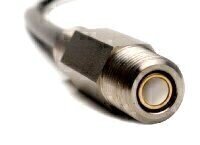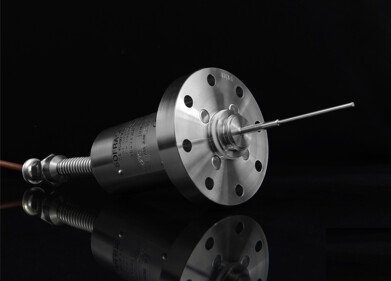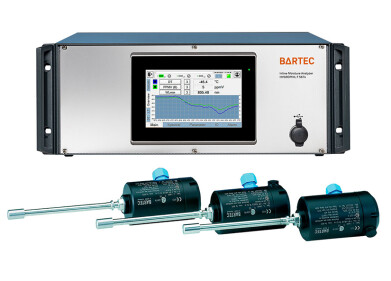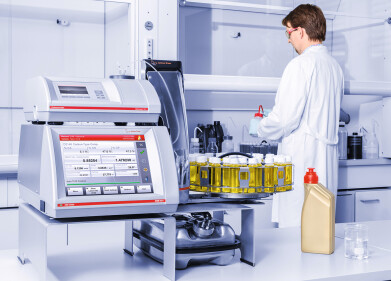Measurement and Testing
New Viscosity Sensor Offers Capabilities for Oil Condition Monitoring Applications
Jan 15 2008
challenging, real-time, in-line oil condition monitoring applications. In today’s market, significant legacy data and industry standards require that sensor readings be equivalent to those obtained by lab methods. This latest capability ensures that customers can obtain labcompatible results from the ViSmart sensor in-line and real-time for in-situ viscosity measurements, complimenting lab measurements and analysis methods.
“Measuring the viscosity of oil is a rapid method of determining oil condition, and is universally considered to be one of the key parameters
in assessing asset readiness,†said Kerem Durdag, director of business development, SenGenuity.
“By successfully creating correlation functions that relate our ViSmart sensor data to ASTM lab viscometer data, SenGenuity has clearly demonstrated that its solidstate, real-time, in-line viscosity sensor can trend and track viscosity data in a similar fashion to a lab tool—with accuracy levels ranging from 91% to 99%, as compared to an industry-standard lab viscometer.â€
Helping Customers Innovate, Improve & Grow: SenGenuity obtained the constants in the interpolation function between kinematic viscosity and ViSmart’s native unit of measurement, acoustic viscosity. SenGenuity used the sensor to obtain a functional dependence of the constants on shear rate for each oil tested, which included mineral and synthetic oils for engine, turbine, hydraulic and gear applications. The results were a look-up function that allowed an oil viscosity (kinematic, dynamic, or acoustic) to be interpolated at temperature and shear rate. For each oil, a pair of correlation functions converting between the measured acoustic viscosity and interpolated kinematic viscosity were evaluated. The R2 of the correlation for individual oils and groups of oils were determined.
SenGenuity’s breakthrough ViSmart viscosity sensor compliments IR spectroscopy and other bulk property sensors and provides instantaneous on-line viscosity and temperature data, has no moving parts with an extremely wide operating range and offers universal plug-n-play connectivity for integration with and into other handheld products. The sensor has been tested in actual commercial and military specified oils in order for a correlation function to be established between the ASTM methods acquired dataset and the sensor generated viscosity values. These correlation functions can be stored on any handheld for automatic conversion. The ViSmart viscosity sensor is currently installed in commercial markets such as machine tool oil monitoring and coating applications in rigorous environments where ROI benefits have been realized.
The ViSmart model series can be connected to any computer or control platform via the standard protocols, the VisConnect™ transmitter and the forthcoming CANBUS option to provide a continuous audit trail for process monitoring markets to control operating costs and maintain quality standards. Additionally, customers can leverage SenGenuity’s starter kit bench-top viscometer data station to acquire multiple channels of continuous viscosity and temperature data.
Digital Edition
PIN 25.1 Feb/March
March 2024
In This Edition Safety - The technology behind the ION Science Tiger XT - Safety with ammonia and LOHCs as hydrogen carriers Analytical Instrumentation - Discussion on new tribology te...
View all digital editions
Events
Apr 22 2024 Hannover, Germany
Apr 22 2024 Marrakech, Morroco
Apr 22 2024 Muscat, Oman
Apr 22 2024 Rotterdam, Netherlands
Apr 23 2024 Singapore


















